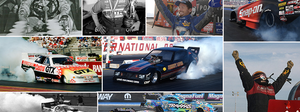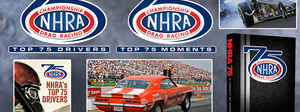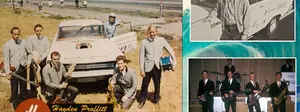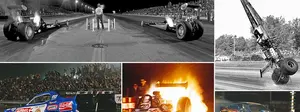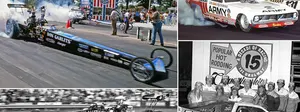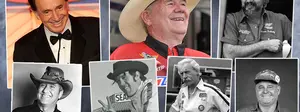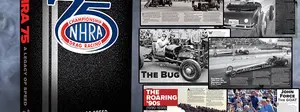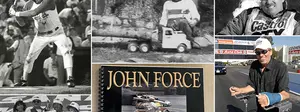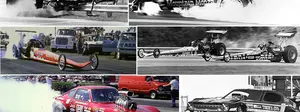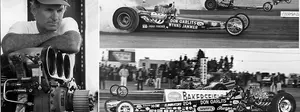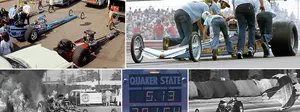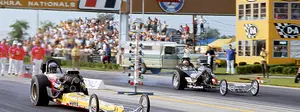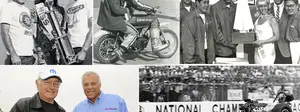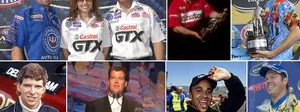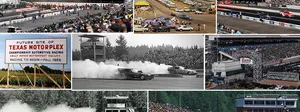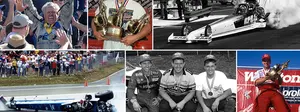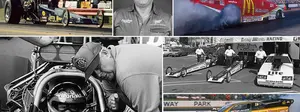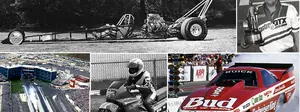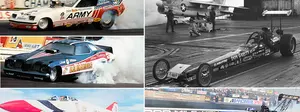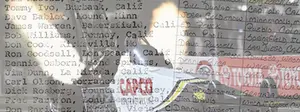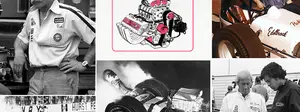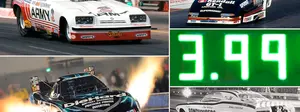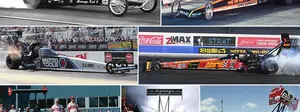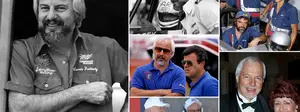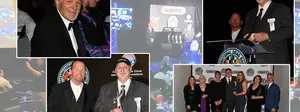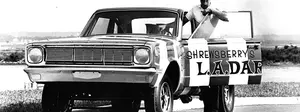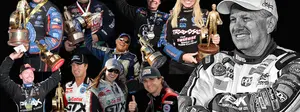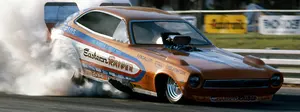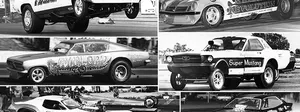The Misc. Files: H is for 'heroes'
Welcome back for another thrilling installment of the Misc. Files, brought to you today by the letter H.
Poor ol' H, often the unforgotten and silent letter in words such as "rhyme" and "hour" and "honest" and even sometimes in "homage," but today it gets its chance to be loud and proud and bring you some of the sometimes overlooked but never forgotten heroes from the deep recesses of the National DRAGSTER photo archives. Here we go!
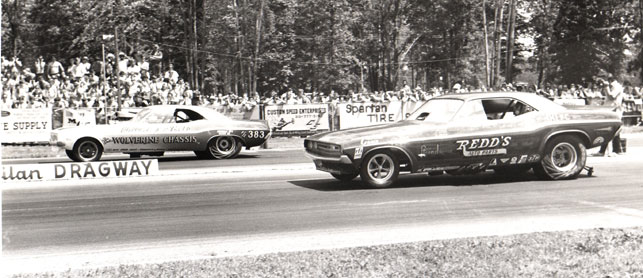 |
Kentucky's Eldon Huffman has received a lot of exposure for his infamous starting-line mishap at the 1970 U.S. Nationals, where the rear end broke and rotated in the chassis, knocking askew the Huff's Hemi Challenger body, so I thought I'd cut him a break … even though he died nearly 30 years ago. This photo shows Huffman racing future Division 3 Pro Comp champ J. Marlis Williams and the Chelsea, Mich.-based Williams & Bohl Wolverine Chassis Challenger at Milan Dragway in 1971.
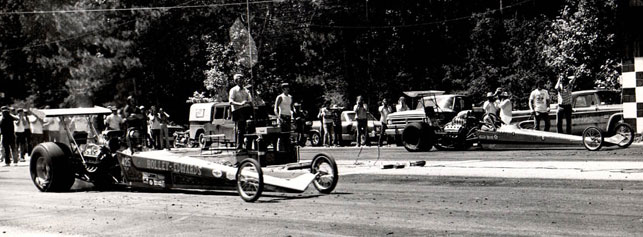 |
Texan Bob Holley, near lane, fielded Top Fuelers — both front- and rear-engined — in the 1970s. He was partners with Dick Venables (father of current Tony Pedregon crew chief Dickie) in a car driven by Ronnie Martin. This shot is from Eastex Dragway in 1977; his driver, Jim Edwards, is in the near lane facing Paul Savadin's West Coast Charger. Holley currently is the crew chief for his son, Chrisman, on an A/Fuel Dragster in Division 4 action, reversing the roles they shared when father drove and son helped in the 1970s.
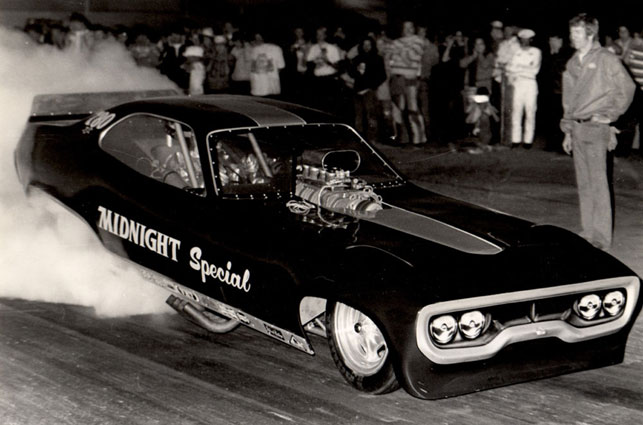 |
John Hoven didn’t have a lot of Funny Cars, but this one, the purple Midnight Special Satellite, was a pretty one. It's shown at Fremont Raceway in September 1975 in this Ron Burch photo. The car was driven by a couple of people and actually has an interesting history. Hoven previously had a '71 Mustang entry, also painted purple, most famously driven by former fuel altered racer Tom Ferraro but also piloted by others after Ferraro left to drive the Rat Trap. He got this Satellite from Northwest match race fave Twig Ziegler. Grand Meredith drove it, then vagabond nitro jockey Denny Savage. I dropped Savage an email, and he confirmed that he had driven the car for his close, dear friend Hoven, and that, in fact, it had quite a lineage. "I drove it last for him, after Grant Meredith," he said. "I was making a run at OCIR, and the front torsion bar broke at about 300 feet, causing the car to make an immediate left turn and crash over the guardrail. The body flew off about a 100 feet into the air, and the car was bent up pretty bad. I sustained minor rib injuries and other bumps and bruises. John spent a long time rebuilding it, and then sold it to the people that made the movie about Shirley [Heart Like A Wheel]. It's the car that was in the movie." Wow, who knew?
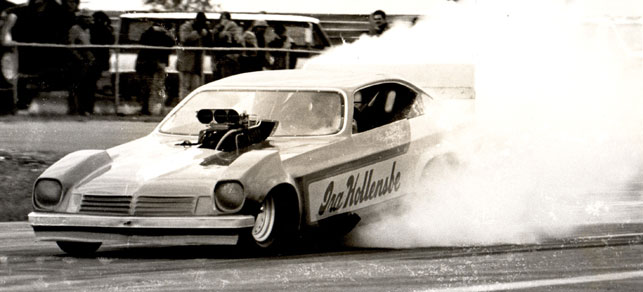 |
Ira Hollensbe's early Mustangs and Plymouths were all emblazoned boldly with the Stars and Stripes and lettered with the word Superstar on their flanks, but his final car, this swoopy '75 Vega, wore just his name. The car, based out of St. Louis, was typical of the cars of that era, with the huge front-fender bubbles to lower the front end (later outlawed, but all the rage in 1974 and 1975) and low stance. Ironically, the caption on the back of this Rick Shiplett photo calls Hollensbe "the Quiet Performer" instead of "Superstar" — maybe it was the change of paint scheme on the car? A nasty fire at the 1976 Gatornationals ended Hollensbe's driving career.
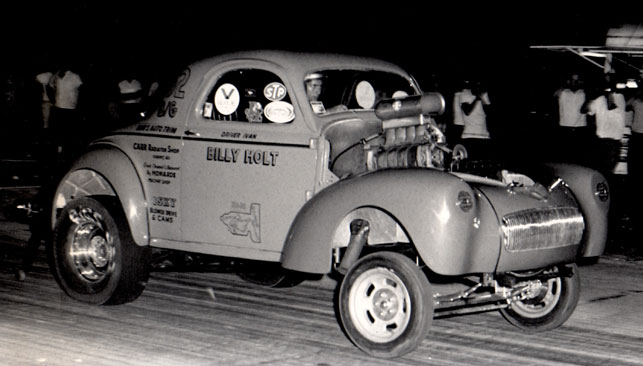 |
Billy Holt is widely remembered by Southeast race fans for his line of Alabamian Funny Cars, but before he went flip-top racing, he was a very successful blown gas competitor in the late 1950s with a '55 Chevy that he cobbled together from three junkyard '55s. A field engineer for a space firm, he had just hit his stride and was class runner-up to Doug Cook at the 1959 Nationals in Detroit when in 1960 he had to take a four-year work-related furlough from racing. He returned to the sport in 1964 with a series of record-holding Willys (this one ran in B/Gas; he later moved to BB/Gas). He switched to Funny Cars in 1970 with the first Logghe-chassised Alabamian (a Corvette that burned to the ground that year at the Turkey Trot Nationals in Gainesville) and later teamed with driver “Pee Wee” Wallace (of Virginian fame) until he quit again in 1975. He made a try at a comeback in 2001, fielding a Top Alcohol Dragster (Alabamian VIII) with sons Greg and Scott, but campaigned it just one season. Holt died Oct. 25, 2007, at the age of 76.
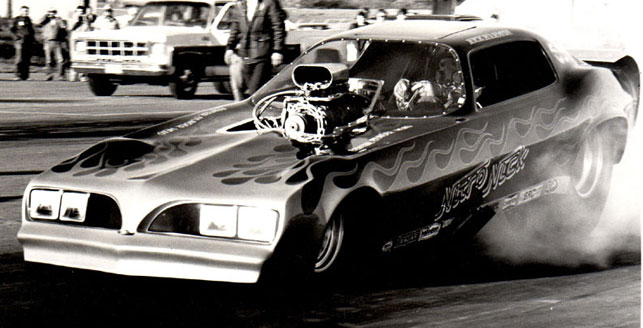 |
A lot of people think of "Nitro Nick" Harmon as a Northwest racer, but he actually got his start in Southern California with the aptly named California Shaker Mustang (which Bryan Raines also drove and later became Aussie champ Graeme Cowin's first Funny Car). He moved to the Northwest in the mid-1970s and had a string of Funny Cars including a Camaro, a Mustang, a Vega, and a Monza. He even enjoyed, for a short time, backing from the U.S. Marines in 1978 with an Arrow-bodied entry but finished his nitro career in this car, with an ex-Gordie Bonin Bubble-Up/Pacemaker Trans Am body, and switched to jet Funny Cars. Northwest drag racing historian "Flyin' Phil” Elliott said, "He was a decent driver and worked hard on an almost zero budget. Harmon was always around, most often qualified. Although low-buck, he was known for being pretty reliable, too, not a 'leaker.' "
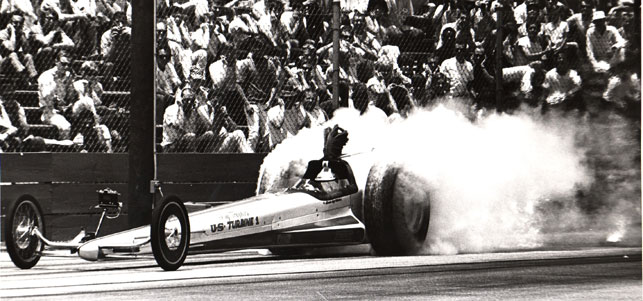 |
Drag racing's earliest days were filled with colorful characters, and George "the Stone Age Man" Hutcheson was certainly one of them. A veteran handler of fuel altereds and front-engined Top Fuelers, he was easily recognizable to fans from the red ostrich plumes that adorned his helmet (and once famously caught fire from the header blasts). Hutcheson, who reportedly earned his nickname because his partner once called their engine, which had made it through nine months without a major rebuild, a "fossil." Hutcheson ran with it and painted the Stone Age Man name on his cars. But none of his cars was wilder nor more remembered than this one, Fling Traylor's U.S. Turbine 1 — "the last of the great turbine-motored cars in modern auto racing," as it was billed. The car, low and lean, was built by Frank Huszar at Race Car Specialties and bodied by Tom Hanna, and although the turbine engine weighed just 85 pounds, it could rev from idle to 17,000 rpm in seven-tenths of a second on a diet of oxygen, propel nitrate, and nitrogen. The car was scary fast and scary to watch as, like the hydrogen-peroxide rocket cars of the near future, it sat silently on the line before belching fire out of the back behind boiling tires, as evidenced in this Steve Reyes photo from Lions Drag Strip during the July 1969 PDA meet. Carrying a camera from Newsweek on its front axle, the car ran 250 mph in front of 25,000 disbelieving fans. The run was the car's great hurrah as Traylor reportedly had all but given up on the project and was ready to donate it to the Smithsonian before Hutcheson booted it into history.
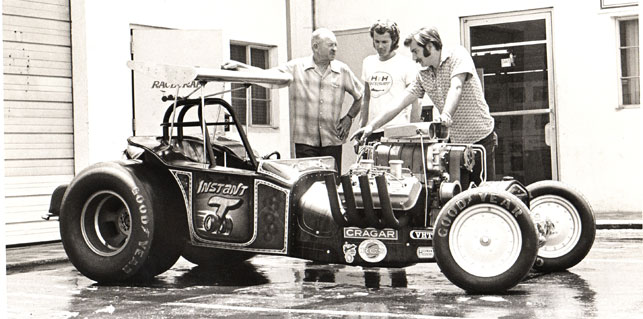 |
Speaking of Huszar, here's a double dose of H for you. That's the man himself, at far left, with Jim Hume, center, and Dennis Geisler as they looked over Geisler's Huszar-built Instant T fuel altered outside of Huszar's Race Car Specialties shop in Tarzana, Calif. RCS built a fleet of famous cars, including the legendary Freight Train twin-engined gas dragster, "Wild Willie" Borsch's Winged Express fuel altered, the Surfers' Top Fueler, and more. Huszar went from being a gaffer for the film studios, a do-it-all Hollywood handyman, to one of the 1950s' and 1960s' most respected chassis builders. He died in 1987. Hume was no slouch, either: His H&H Racecraft business was one of the top fabrication shops on the West Coast.
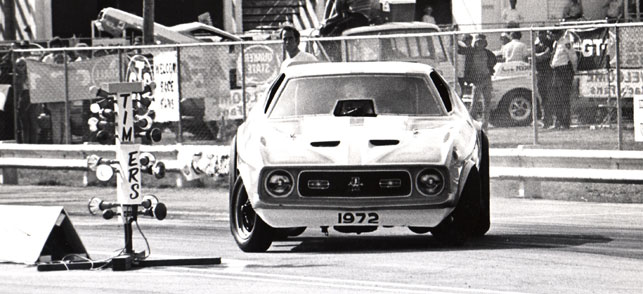 |
Here's another double H, the late Harry Hudson, getting way out of shape in his Super Ford Mustang in 1972 in another of Steve Reyes' great grabs. Hudson, who split time between his own car and driving the Dennis the Menace entries for Dennis Kirkland, died at the wheel of Kirkland's 'Stang in a crash in Blaney, S.C.
 |
And, finally, this humorous HH. When I stumbled across this photo, I instantly recognized the guy at left as the notorious "Berserko Bob" Doerrer, erstwhile track announcer, publicist, blogger, lounge operator, rock-band singer, and more. I could see from just the nose of the car that it was Harry Hall's Shenandoah Plymouth Arrow Top Alcohol Funny Car and that they were posed with the door of a race car, but it wasn't until I turned the pic over and read the caption that I started to grin. Rather than reprint the caption, I e-mailed "Berserko" to get his colorful remembrance. "Harry crashed K.S. Pittman's AA/GS Willys at the '72 Summernationals in a horrific wreck that a lot of us at first glance thought he was killed," he responded. "Harry survived the crash, and all the pieces of the car were collected up and taken back to the pits, but we couldn't find one of the doors. Years later, while cutting the brush that had grown on the left side of the track on the other side of the return road, Raceway Park employee Billy Burst found it hidden by years of vegetation growth. He bought the door to me, and for many years, it was hung on my living room wall as a part of my drag racing memorabilia collection. Harry returned to racing in his Shenandoah BB/FC a few years later, and I thought it would be cool to reunite him with the missing piece of his car, and I freaked him out by presenting it to him on the starting line before first round of eliminations of the track's U.S. All-Pro Funny Car Championships in 1982."
Great story. That's it for another dose of drag racing alphabet soup. I gotta get the "H" out of here now and get ready for the Fourth of July. Y'all be safe.



